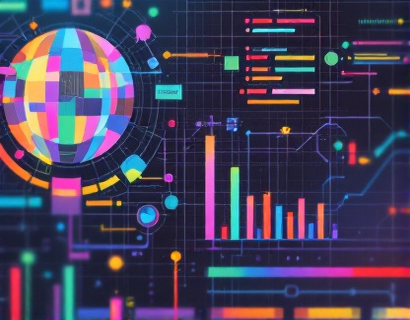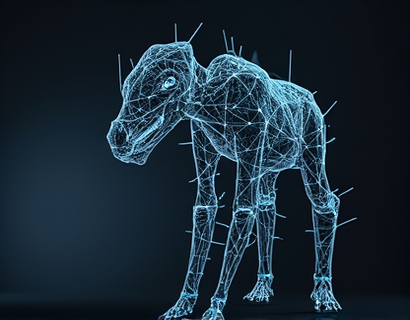Decentralized Authentication: Transforming Business Security and Access with Advanced Technology Solutions
In the rapidly evolving landscape of digital security, businesses are increasingly turning to decentralized authentication solutions to enhance their security measures and streamline access control. These advanced technology solutions offer a robust framework for identity management, ensuring both seamless user experiences and stringent data protection. As modern enterprises strive for operational excellence, the integration of decentralized authentication becomes pivotal in achieving enhanced security and efficiency.
The traditional centralized authentication models, while familiar, come with significant drawbacks. Centralized systems rely on a single point of control, making them vulnerable to large-scale breaches. A compromised central authority can lead to widespread security incidents, affecting thousands of users and resulting in substantial financial and reputational damage. Decentralized authentication addresses these vulnerabilities by distributing control across a network, eliminating the risk associated with a single point of failure.
Decentralized authentication leverages blockchain technology and distributed ledger systems to create a more secure and resilient identity management framework. By storing identity data across multiple nodes, these systems ensure that no single entity has complete control over user information. This distribution not only enhances security but also promotes transparency and user sovereignty over personal data.
One of the key benefits of decentralized authentication is its ability to provide strong, verifiable identities without relying on centralized databases. Users can generate and manage their own cryptographic keys, which serve as the foundation for secure authentication. This approach minimizes the risk of identity theft and unauthorized access, as the private keys remain under the user's control.
Moreover, decentralized authentication solutions offer improved scalability and flexibility. Traditional systems often struggle to accommodate the growing number of users and devices, leading to performance bottlenecks. Decentralized systems, on the other hand, can easily scale by adding more nodes to the network, ensuring consistent performance even as the user base expands.
Another significant advantage is the reduction in operational costs. Centralized authentication requires substantial investment in infrastructure and maintenance, including servers, software, and security personnel. Decentralized solutions reduce these costs by eliminating the need for centralized servers and simplifying the management of authentication processes. This shift not only optimizes resource allocation but also allows businesses to focus on core operations rather than security overhead.
In addition to security and cost benefits, decentralized authentication enhances user experience. Users no longer need to remember multiple passwords or undergo cumbersome verification processes. With decentralized systems, authentication can be seamlessly integrated into various applications and services, providing a smooth and frictionless experience. This user-centric approach fosters higher adoption rates and increased user satisfaction.
Implementing decentralized authentication involves several key components. At the core is the use of cryptographic techniques such as public-key infrastructure (PKI) and digital signatures. These technologies ensure that user identities are securely verified without exposing sensitive information. Blockchain technology plays a crucial role in maintaining an immutable record of authentication events, providing an auditable trail that enhances trust and accountability.
Smart contracts, self-executing contracts with the terms directly written into code, can automate and enforce authentication processes. These contracts ensure that access is granted only when specific conditions are met, reducing the risk of unauthorized access and streamlining workflows. The automation provided by smart contracts also minimizes human error, further enhancing security and efficiency.
Decentralized authentication services and software are designed to be interoperable, allowing seamless integration with existing systems and applications. This compatibility ensures that businesses can adopt these solutions without overhauling their current infrastructure. Moreover, these services often come with robust APIs and developer tools, enabling customization and extension to meet specific business needs.
The adoption of decentralized authentication is not without challenges. One of the primary hurdles is the need for widespread education and awareness. Many organizations and users are still unfamiliar with the concepts and benefits of decentralized systems. Educational initiatives and case studies demonstrating the success of decentralized authentication can help bridge this knowledge gap.
Another challenge is the regulatory landscape. As decentralized technologies are relatively new, regulatory frameworks are still evolving. Businesses must navigate these changing regulations to ensure compliance while leveraging the benefits of decentralized authentication. Engaging with regulatory bodies and participating in industry standards development can help shape a favorable environment for adoption.
Despite these challenges, the potential benefits of decentralized authentication are compelling. Enhanced security, reduced operational costs, improved user experience, and greater control over personal data make it an attractive solution for modern enterprises. As the technology matures and more organizations adopt these solutions, the ecosystem will continue to grow, driving innovation and further improvements.
In conclusion, decentralized authentication represents a transformative shift in business security and access management. By embracing advanced technology solutions, businesses can achieve a new level of security and operational efficiency. As the demand for robust identity management continues to rise, decentralized authentication will play an increasingly vital role in safeguarding digital assets and ensuring seamless user experiences.











































